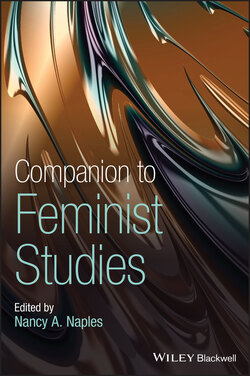Читать книгу Companion to Feminist Studies - Группа авторов - Страница 40
Exchange Value, Surplus Value, and Social Reproduction Theory
ОглавлениеGayatri Spivak proposed an alternative reading of reproduction and production to shift the question of patriarchy and capitalism to questions of value. In her article, “Scattered speculations on the question of value,” she emphasized the imbricated quality of use value to exchange value in the international division of labor. Spivak reframed the binary opposition between economics and culture that was embedded in the mode of production debates about capitalism and patriarchy. Instead, she emphasized, “the complicity between cultural and economic value‐systems.” She cited the centrality of women in the international division of labor beginning in the mid‐1960s that relied on patriarchal social relations to produce women as super‐exploited workers (Spivak 1985, p. 83). She emphasized the “affectively necessary labor (that) brings in the attendant question of desire” (Spivak 1985, p. 80). Himani Bannerji raised another question about cultures of resistance that linked them decisively to the relations of production. In her critique of subaltern studies as culturalist, Bannerji says, “any project of decolonization which separates property and power from moral proprieties, avoids the issue of social justice” (Bannerji 2001, p. 72). These interventions stressed the necessary porousness of conceptual divisions between reproduction and production. Marxist feminists demanded a more careful analysis of how the affective, libidinal, and moral realms functioned in the service of capitalism. They sought to clarify the relationship between value, particularly exchange value and surplus value, and values, including ethics and use value, in capitalism to better attend to the desires and needs beyond that system.
Spivak's and Bannerji's attention to morality and affective labor raised concerns that are now central within social reproduction theory. Social reproduction theory attends to cultural and economic analyses of reproduction in global capitalism. In Tithi Bhattacharya's description, it “is primarily concerned with understanding how categories of oppression (such as gender, race and ableism) are coproduced in simultaneity with the production of surplus value” (Bhattacharya 2017, p. 14). Two key insights mark Marxist feminist debates about social reproduction in capitalism: first, the blurred distinctions between reproduction and production for the accumulation of capital on the one hand, and an accumulation that immiserates workers' lives on the other (Nash and Fernández‐Kelly 1983; Ong 1987). The second key insight of social reproduction theories systemizes Marxist feminist attention to social relations of racism, sexism, casteism, and religious bigotry as central relations that fuel the capitalist accumulation of wealth (Cooper 2017; Mojab 2015).
